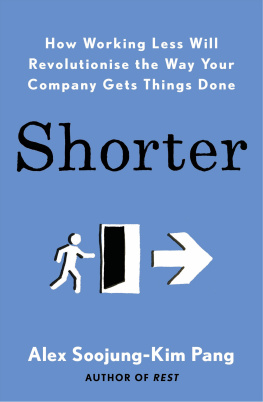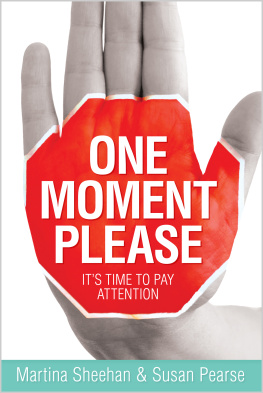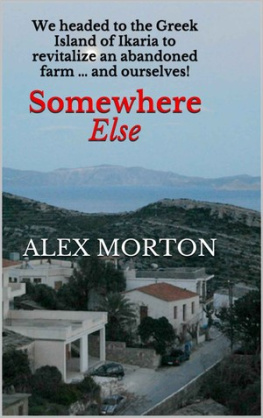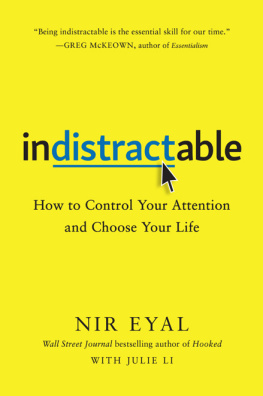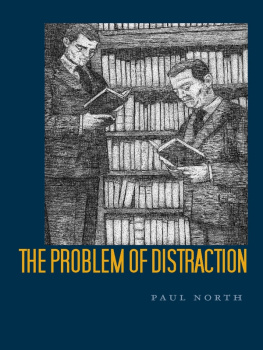
T his book started as a sabbatical research project at Microsoft Research Cambridge, in England. Without the unexpected and amazing generosity of Richard Harper, director of the Socio-Digital Systems Group at MSC, this project would never have happened. The experience of strategizing over coffee in the MSC lounge, working through ideas during walks through Grantchester Meadows to the Orchard, and talking shop over pints at the Eagle and the Pickerel left an indelible imprint on my work. Sam Kinsley and his group, at the University of West Reading, and Yvonne Richards and her lab, at Open University, provided critical early interest in the project. I was also fortunate that my fellow Microsoft visitor Annie Gentes spent the next year at Stanford working on a project that overlapped in interesting ways with my own.
While at Microsoft Research Cambridge, I began writing about contemplative computing on my blog (http://www.contemplativecomputing.org). For me, a blog is a commonplace book, sounding board, and advertisement; it offers a chance for me to note interesting articles, think aloud about subjects that I might later explore in greater depth, and spread the word about upcoming talks. As a result, some of the posts formed the basis for sections of this book, but over the course of editing and revising, they have been substantially changed (and I hope improved).
I owe a great debt to the people who gave so much of their time to answer questions, sit for interviews, talk on Skype, or respond to my e-mails. Such generosity is humbling and gratifying. I thank Sun Joo (Grace) Ahn, Pia Aitken, James Anderson, John Bartol, Gwen Bell, Jan Bilik, Jeff Brosco, David Brownlee, Michael Chorost, Shay Colson, Marzban Cooper, Ruth Schwartz Cowan, Mihaly Csikszentmihalyi, Susana Darwin, Andr Delbecq, Anna Digabriele, Anne Dilenschneider, Jill Davis Doughtie, Elizabeth Drescher, Elizabeth Dunn, Nancy Etchemendy, Morley Feinstein, Jesse Fox, Jesse Grosjean, Michael Grothaus, Steve Herrod, Hal Hershfield, William Huchting, Cody Karutz, Mike Kuniavsky, Donald Latumahina, Ho John Lee, Chris Luebkeman, Lambros Malafouris, Marguerite Manteau-Rao, Neema Moraveji, Ramez Naam, Daniel Nevins, Colin Renfrew, Martha Rock, Christine Rosen, Prime Sarmiento, Sharon Sarmiento, Lauren Silver, Monica Smith, Linda Stone, Tammy Strobel, Fred Stutzman, Phil Tang, Edward Tenner, Mads Thimmer, Anthony Townsend, Lyn Wadley, Carolyn Wilson, David Wuertele, James Yu, and a pseudonymous contributor, Megan Jones. Special thanks to the Buddhist monks, nuns, and lay practitioners for their thoughtful and generous responses to my questions: Jonathan Coppola, Caine Das, Sister Gryphon, Choekyi Libby, Bhikkhu Samahita, Damchoe Wangmo, and Noah Yuttadhammo.
My literary agent Zo Pagnamenta and my editor John Parsley have been essential collaborators. The rest of the Pagnamenta Agencyparticularly the ever-patient Sarah Levittand everyone at Little, Brown have all been terrific. If you havent written a book, you may imagine it as springing fully formed from the brow of the author. It never works that way. While Im ultimately responsible for every word, this book is a collaborative production.
While the book began in Cambridge, it brings together a number of interests pursued at widely different times. My thinking about technology will, it seems, be forever influenced by my training under Rob Kohler, Riki Kuklick, and Tom Hughes in the Department of History and Sociology of Science at the University of Pennsylvania in the 1980s. Im still trying to answer questions about creativity and technology that Tom Hughes posed in the very first class I took in college. Years later, Bob McHenry started me thinking about the cultural and cognitive impacts of new media when he hired me to guide the Encyclopedia Britannicas editorial division in the 1990s. Finally, while a research director at the Institute for the Future in the 2000s, I discovered the intellectual rewards that come from applying abstract, scholarly ideas to concrete, real-world problems.
My children displayed great patience during the months I retreated to the garage to write, and even greater fortitude when my wife and I left them in California during my Cambridge sabbatical. You did really well, guys. Thanks.
Finally, my deepest thanks to my wife, Heather, who endures everything the spouse of a writer has to with understanding and grace. I couldnt do it without you.

T his is a version of the technology diary that Ohio State University professor Jesse Fox assigns to her students. Its meant to give you a more detailed sense of the kinds of things you should track when gathering data for your self-experiments. Jesses generosity in sharing this and allowing it to be reprinted is a model of good scholarly behavior and an example of how social scientists can (and should) share their insights with broader audiences.
1. For one typical weekday and one typical weekend day, keep a notebook (or note function on your technology of choice) and keep track of every mediated/technological interaction you have over the course of the day; note why you used the technology and how much time you spent with it. Write down the time you started and the time you stopped each interaction. Accessing Facebook? Write it down. Getting or sending a text? Write it down. Snapping a pic with your phone? Write it down. Checking e-mail? Write it down. Reading a PDF for class you downloaded? Write it down. Using your GPS? Write it down. Listening to your iPod? Write it down. Watching a show on Netflix? Write it down. Playing a video or mobile game? Write it down. Be wary of times when you are using multiple technologies at once!
It might also be interesting for you to mark down how you spend the remainder of your timesleeping, talking to friends face-to-face, studying without technology, using old media like magazines, books, or newspapersto compare the proportion of your day spent with and without technology, to contrast old versus new media use, or to evaluate how much of your daily social interaction comes via technology.
2. Crunch your numbers. Report how much time total or how many times you used specific technologies. Where does your time go? What percentage of your waking hours is spent with technology?
3. Evaluate and criticize the tasks you achieved with your media use in light of the amount of time you spent. For each, consider:
(a) Do you feel this task required technology, was improved by using technology, or lost something because it was via technology?
(b) Did you have an emotional response to using the technology (e.g., relief, joy, frustration)? You should specify whether your emotional response was from the content (e.g., a mean text message from a friend), the technology itself (e.g., annoyance because the text message sound interrupted a conversation), or both.
(c) Were you multitasking? Do you feel your multitasking was effective?
(d) Was this a positive or negative experience? Do you think this was the optimal use of your time and the optimal use of the technology, or could you have done something better or more effectively?
4. Reflect. Considering your current technology use, what changes (if any) could you make to improve your day-to-day life (e.g., work productivity, mood, study habits, sleep, social interaction, health)? Are these goals compatible? What barriers exist to your making these changes?
As Jesse notes, I leave it up to them to define technology. Although I give examples (mostly to remind them of all the small things they do that involve tech), I am always interested to see how many of them include, for example, their alarm clocks or a computerized vending machine. This usually opens up some interesting discussion in class about how we grow to take technologies for granted and what we imagine our future will be with modern technologies as common as a microwave or as hip as a cassette player.


